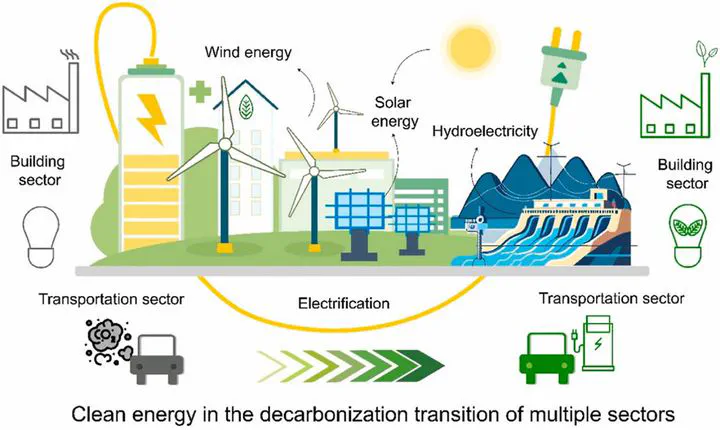The role of clean energy in achieving decarbonization of electricity generation, transportation, and heating sectors by 2050: A meta-analysis review

Abstract
Concerns regarding the negative impact of fossil fuels on the environment have led to a global shift towards sustainable energy systems. This study reviewed recent studies on renewable energy composition and electrification abatement in 26 future scenarios of Canada. There is a trend to move from a comprehensive forecasting analysis of multiple energy sectors to a detailed transition analysis of individual sectors, providing more precise recommendations for achieving emission targets. In 2050, the shares of hydropower and nuclear power fluctuate little between scenarios, accounting for about 60% and 20%, respectively. The balance between variable renewables and natural gas remains unclear to fill the gap from the replacement of coal-fired power by 2030. The capacity demand for solar and wind under the 2050 GHG-100% scenario is doubled compared to the results of the 2050 existing policy scenario, which is beyond what is currently planned by government policies. This increased demand for renewable energy sources requires inter-provincial cooperation in electricity planning for countries with mismatches between renewable energy potential and high energy consumption areas. The result highlights the insufficient carbon price signal for coal, which is only 1/7 of that in the road transport sector, emphasizing the need for stronger carbon pricing policies to meet the targets of the Paris Agreement. This study provides valuable insights into the prospects of renewable energy and electrification abatement in Canada, highlighting the need for inter-provincial cooperation, precise transition analysis, and effective carbon pricing policies.
Type
Publication
Renewable and Sustainable Energy Reviews